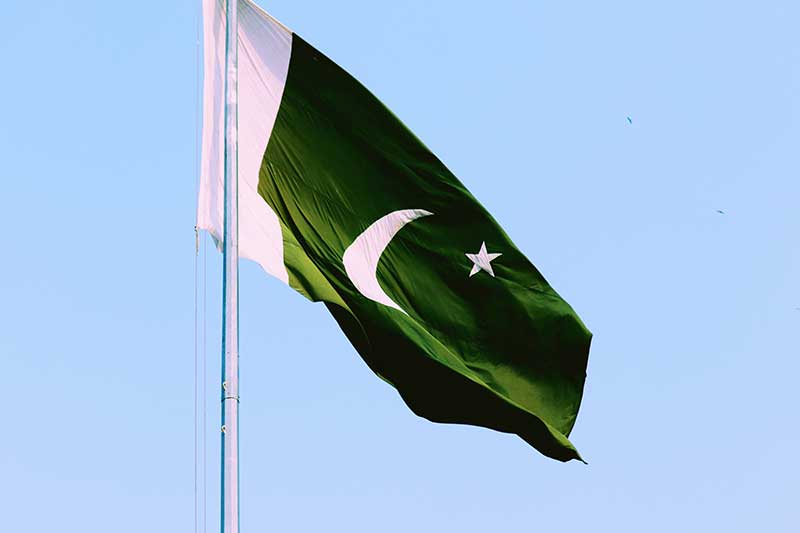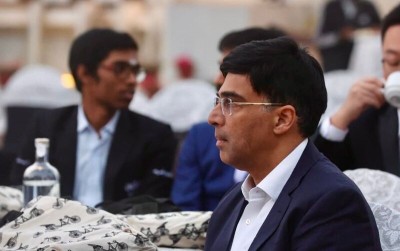 Pakistan
Pakistan
The proposed trial of Pakistani civilians in military courts violates not just the country’s Constitution but also international law
Former Prime Minister Imran Khan, who is facing a string of court cases since being ousted from power last year and whose arrest in a graft case in May led to violent protests across the country, bemoaned recently when commenting on the state of democracy in Pakistan that the country was “standing on the edge of darkness”.
Thousands of Imran Khan’s supporters had been apprehended by security forces in a countrywide crackdown that targeted those accused of involvement in the violent protests, especially those blamed for ransacking of military installations.
In the interview with MSNBC, Khan continued, “There is no rule of law and an undeclared martial law in Pakistan currently”.
That there is more than just a grain of truth to the former premier’s statement is borne out by the fact that the recently announced decision by the Pakistan Army to try civilians accused of involvement in the 9 May riots under military laws has ignited concerns among human rights activists, raising questions about the protection of fundamental rights and civil liberties in the country.
Global and local human rights campaigners in Pakistan urged the government to transfer political activists who are set to be prosecuted in military courts for arson to the civilian justice system, in which their cases rightly ought to be heard and ruled upon.
The trial of civilians in military courts in Pakistan is not just opaque, irregular and improper; it is outright illegal and immoral. Serving the interests of justice is by no means the overriding, or even an important, objective of Pakistani military courts.
The Pakistani daily The Express Tribune quoted Advocate Mirza Moiz Baig as eloquently describing it thus: “Military justice is to justice what military music is to music…
The trial of civilians by military courts is generally an aberration given that the mystery which shrouds military courts is inconsistent with the right to fair trial and due process”.
How, and with what authority, can an Army be vain enough to consider itself endowed with the competence to dispense flawless justice is a question worth asking, as is how indulging in such judicial activity involving protesting civilians is related to the onerous duty of defending frontiers.
The protests coincided with Pakistan’s worst economic crisis in decades with record high inflation, anemic growth and International Monetary Fund (IMF) funding delayed for months, prompting concerns that the country could default on its external payment obligations.
Many of Khan’s supporters attacked police officers and set fire to ambulances, police vehicles, and schools. Pakistan’s Army described 9 May as a “dark day” and warned protesters of “severe retaliation” against further attacks on military and State properties.
Even if the image and the dignity of the Pakistani military establishment were both dented on 9 May when some groups “breached the military headquarters while others set fire to a military commander’s official residence”, the loss of eight lives to the mindless violence is what really ought to have been in focus.
Now, it is the questioning of the military courts and the legality of their jurisdiction over civilians is what appears to be making the military establishment jittery. After all, Pakistan is the only country in South Asia to allow military courts to try civilians for non-military offences, including offences related to terrorism.
Answering the question of whether civilians in Pakistan can be tried under military laws, the Wilson Center’s Pakistan Fellow Baqir Sajjad explained on 5 June in ‘Undermining Justice: Court-Martialing Civilians in Pakistan’ that “Originally, the Army Act was intended to prosecute military personnel only who were accused of specific crimes, not even retired soldiers.
However, Section 2(1)(d) of the law expands its scope to encompass anyone who ‘seduces or attempts to seduce any person subject to this Act from his duty or allegiance to government’ and has committed an ‘offense under the Official Secrets Act 1932’.
The ambit of the Army Act was further broadened through an amendment in 2015-16, which included individuals claiming or known to belong to ‘any terrorist group or organization using the name of religion or a sect’ and engaging in attacks on civilians or military institutions, establishments, or personnel.
Such cases were referred to military courts based on recommendations from the federal government. It is important to note that this provision did not apply to any political party registered under the Political Parties Act 2002. Furthermore, this provision has ceased to exist after the expiration of the mandate of military courts established for prosecuting those accused of terrorism.
Therefore, technically speaking, there is a very limited scope for the trial of civilians under military laws. The addition of charges under the Official Secrets Act against the alleged rioters is primarily an attempt by the Army to establish jurisdiction, although it would require considerable ingenuity on the part of the prosecutors to justify how these acts of vandalism fall within the purview of this anti-espionage law”.
Baqir Sajjad added, “Human Rights Watch has reported that approximately 4,000 persons, primarily affiliated with Khan's Pakistan Tehrik-e-Insaf party, have been arrested in connection with the protests. However, the military has not clarified how many of these individuals will be subjected to ‘court-martial’ under the Army Act and Official Secrets Act.
The Pakistan Army Act, established in 1952, serves as the legal framework for the trial of military personnel according to Army’s own legal code. Meanwhile, the Official Secrets Act, a remnant of the colonial era, is employed to deal with cases of unauthorized disclosure of information and espionage.
The primary concern lies in the fact that military trials lack the necessary safeguards and transparency, thereby exposing defendants to the risk of potential miscarriages of justice. In view of the history of coerced confessions, denial of due process, and unfair trials, the move to subject civilians to military regulations and procedures would undermine the fundamental principles of justice.
Serving justice through a fair and transparent legal process would serve Pakistan’s own interest by maintaining the integrity of its legal system, protecting the civil liberties and fundamental rights of its citizens, and increasing public confidence in the State”.
The decision by the Army to conduct trials of civilians under the Army Act, backed by ratifications from the National Security Committee and the federal cabinet, not only violates the country’s Constitution but also contradicts its international obligations.
Article 10-A of the Pakistan Constitution guarantees individuals the right to a fair trial and due process in the determination of their civil rights, obligations, or any criminal charges against them.
Furthermore, Pakistan is a signatory to the Universal Declaration of Human Rights and various international treaties on human rights, including the International Covenant on Civil and Political Rights. Article 14 of this Covenant stipulates that all individuals should be treated equally before courts and tribunals, and everyone is entitled to a fair and public hearing by a competent, independent, and impartial tribunal established by law.
Not surprisingly, Imran Khan’s Pakistan Tehreek-e-Insaf (PTI) party and other civil society organizations have moved Pakistani courts against the decision. The PTI approached the Supreme Court, and in its petition called the decision a “clear violation” of the constitutional guarantees of due process and fair trial, adding that “Such trials are highly deprecated internationally and widely considered as falling short of providing fair trial.
They constitute a violation of Pakistan’s obligations under the International Covenant on Civil and Political Rights (ICCPR) which has been ratified by the country. Trial of thousands of workers of a political party (or a political leader) through such courts is unheard of in the history of this country.
The workers and supporters now sought to be tried through military courts are not part of any terrorist organisation and pose no threat to national security. Thus, it is contrary to the Constitution to try civilian protesters thorough military courts”.
Human rights watchdogs were highly critical of the Pakistani government and Army, and demanded that the decision be repealed.
Dinushika Dissanayake, Deputy Regional Director for South Asia at Amnesty International, said: “It is alarming to note that the Pakistani Army has stated its intention to try civilians under military laws, possibly in military courts.
Trying civilians in military courts is contrary to international law. Article 14 of the International Covenant on Civil and Political Rights (ICCPR), which Pakistan has ratified, guarantees the right to a trial before a ‘competent, independent, and impartial tribunal established by law’.
Military courts in Pakistan are not independent courts and are specialized, purely functional, and designed to maintain discipline within the armed forces.
Amnesty International has documented a catalogue of human right violations stemming from trying civilians in military courts in Pakistan, including flagrant disregard for due process, lack of transparency, coerced confessions, and executions after grossly unfair trials.
Therefore, any indication that the trial of civilians could be held in military courts is incompatible with Pakistan’s obligations under international human rights law. This is purely an intimidation tactic, designed to crack down on dissent by exercising fear of an institution that has never been held to account for its overreach.
There are several provisions under ordinary criminal laws that can be used to prosecute vandalism and destruction of public property. The right to a fair trial, guaranteed by Pakistan’s constitution, is severely undermined by this move and cannot be justified. It must be struck down immediately”.
Patricia Gossman, Associate Asia Director at Human Rights Watch, questioned the integrity of the military courts, noting that their judges are serving officers and are not independent of the government.
She said “The Pakistani government has a responsibility to prosecute those committing violence, but only in independent and impartial civilian courts. Pakistan’s military courts, which use secret procedures that deny due process rights, should not be used to prosecute civilians, even for crimes against the military”. Gossman continued, “Denying people a fair trial is not the answer to Pakistan’s complex security and political challenges.
Strengthening the civilian courts and upholding the rule of law is the message the Pakistani government should send as an effective and powerful response to violence”. Also, Voice of America (VOA) quoted Kenneth Roth, a former executive director of Human Rights Watch, as arguing that “For the Pakistani government to threaten to prosecute Imran Khan in compromised military courts is a virtual admission that the ‘case’ against him is weak. If he really did something wrong, why not prosecute him in independent civilian courts?”
The independent Human Rights Commission of Pakistan strongly opposed the government’s decision. Hina Jilani, the commission's chief, said that “the arbitrary manner” used to select cases to be tried by military courts denies the suspects’ constitutional right to a fair trial. “There is no due process in military courts. Independence and impartiality of these courts are always questionable and people do not get real justice”, Jilani told VOA.
Despite these weighty calls for real justice instead of pre-decided judgments, the Pakistan Army and government have remained unmoved. During an address to officers in Lahore Garrison on 20 May, Army Chief General Asim Munir announced that the “legal process of trial against planners, instigators, abettors and perpetrators involved in 9 May tragedy has commenced under Pakistan Army Act and Official Secret Act”.
Pakistan’s Interior Minister Rana Sanaullah said even Imran Khan could face trial in a military court for “masterminding” the attacks on the army during the deadly protests on 9 & 10 May. When Dawn News asked him if the opposition leader would face a military court, Sanaullah responded with “Absolutely, why shouldn’t he?” Elaborating on the government’s position, he continued, “The plan that he made to target the military installations and then had it executed, in my understanding, absolutely is a case of a military court. He carried it all out. He is the architect of all this discord”.
Meanwhile, Pakistan’s Law and Justice Minister Azam Nazeer Tarar claimed that Pakistan’s use of the anti-terrorism law is “fully compliant with international guarantees for free trial” and said those accused have the right to “engage counsel of their choice”.
As objectionable and inappropriate as trying civilians in Pakistani military courts is, what is equally as discouraging for the country is that politicians of all shades, including Imran Khan, have over generations glorified this very practice when political expediency has made it beneficial or suitable for them to do so. PM Shehbaz Sharif recently denounced attacks on military installations in parliament as “outright enmity” against the country, arguing that “Therefore, all these cases will be tried under the Army Act”.
The broader question is whether PM Sharif, or his elder sibling Nawaz Sharif who is touted to succeed Shehbaz as PM with the military’s full blessings, will sing the same tune when eventually their next fallout with the military establishment occurs, as it inevitably will, and they are paraded before uniformed, armed, and unqualified judges, whose instructions from the Generals would be to mete out punishment freely, lavishly and harshly, with even the gallows being an option as it has been with other more prominent politicians that have served the country.
Support Our Journalism
We cannot do without you.. your contribution supports unbiased journalism
IBNS is not driven by any ism- not wokeism, not racism, not skewed secularism, not hyper right-wing or left liberal ideals, nor by any hardline religious beliefs or hyper nationalism. We want to serve you good old objective news, as they are. We do not judge or preach. We let people decide for themselves. We only try to present factual and well-sourced news.







